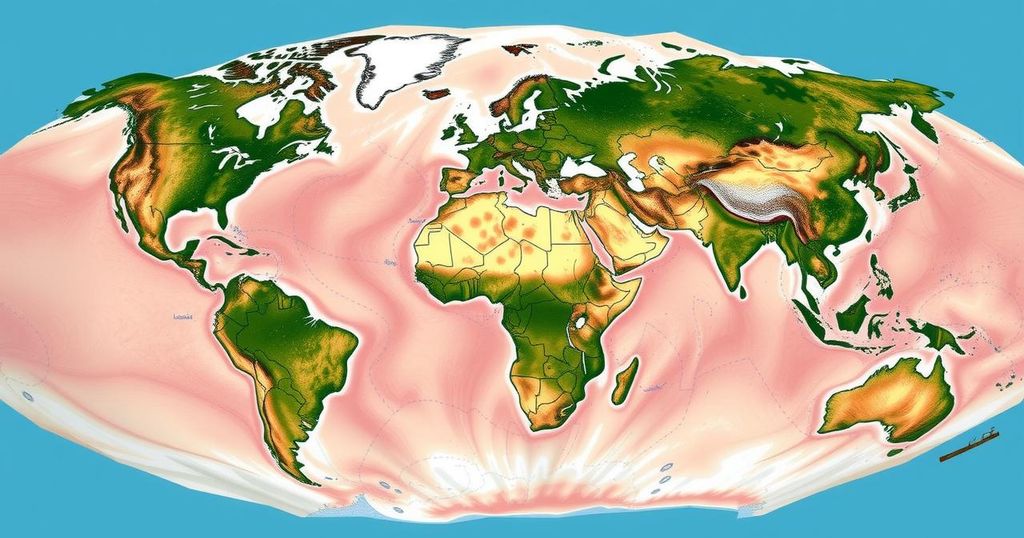In 2024, Earth’s surface temperature reached its highest on record, with upper ocean heat content also peaking. Antarctic sea ice coverage was the second lowest on record, and snow cover extent in the Northern Hemisphere remained slightly below average. 85 named tropical storms occurred globally, with a notable increase in the North Atlantic, highlighting the ongoing impacts of climate change.
In 2024, global climate data reveals that the Earth recorded its warmest temperatures since records began in 1850, with a notable global surface temperature increase of 2.32°F (1.29°C) above the 20th-century average. This surge indicates a continual upward trend, with 2024 surpassing the previous high set in 2023 by 0.18°F (0.10°C). Northern Hemisphere snow cover extent averaged 9.2 million square miles, while Antarctic sea ice reached its second lowest extent. Concurrently, ocean heat content also peaked, reflecting critical shifts in climate patterns. Moreover, 85 named tropical storms were reported globally, with the North Atlantic region experiencing an uptick in activity, highlighting the diverse impacts of this warming trend on both weather systems and global ecosystems.
The analysis of global climate trends is essential to ascertain the effects of climate change and establish informed strategies for mitigation and adaptation. The year 2024 marked significant developments in various climate indicators, including surface temperature, ocean heat content, snow cover, and sea ice extent, each offering vital insights into ongoing environmental changes. The data stems from authoritative sources such as NOAA, emphasizing the global community’s urgent need to understand and address these climatic shifts that may impact ecosystems, economies, and human health.
In conclusion, the climate data for 2024 underscores an alarming trend of rising temperatures and diminishing snow and ice coverage, which poses challenges for future climate stability. The increase in ocean heat content signifies a critical factor in climate change dynamics, and the frequent occurrence of extreme weather events necessitates immediate attention. The insights provided by NOAA’s comprehensive reports point to the necessity of collaborative global action to combat climate change and safeguard ecological balance for future generations.
Original Source: www.ncei.noaa.gov






